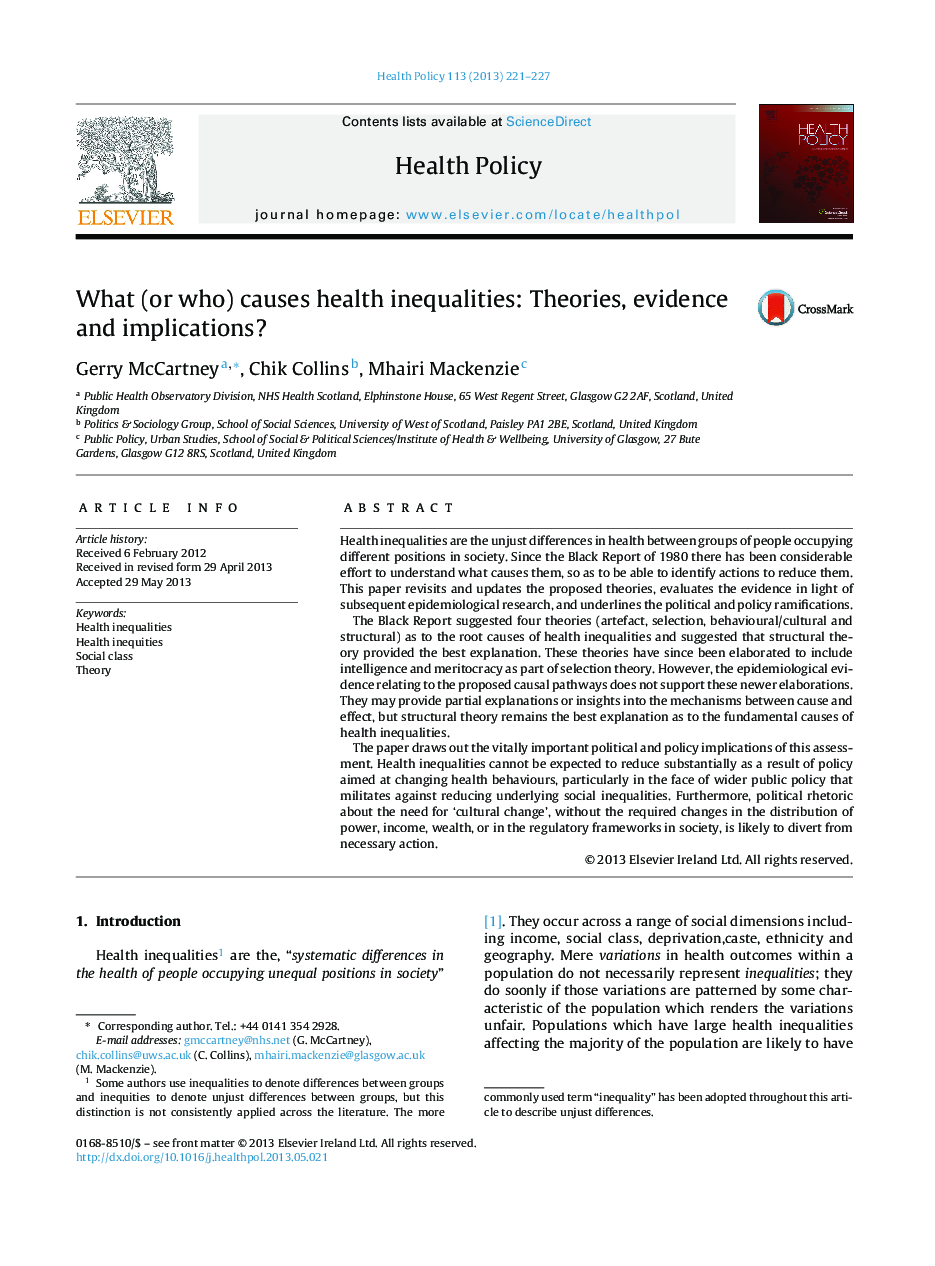| Article ID | Journal | Published Year | Pages | File Type |
|---|---|---|---|---|
| 4197770 | Health Policy | 2013 | 7 Pages |
Health inequalities are the unjust differences in health between groups of people occupying different positions in society. Since the Black Report of 1980 there has been considerable effort to understand what causes them, so as to be able to identify actions to reduce them. This paper revisits and updates the proposed theories, evaluates the evidence in light of subsequent epidemiological research, and underlines the political and policy ramifications.The Black Report suggested four theories (artefact, selection, behavioural/cultural and structural) as to the root causes of health inequalities and suggested that structural theory provided the best explanation. These theories have since been elaborated to include intelligence and meritocracy as part of selection theory. However, the epidemiological evidence relating to the proposed causal pathways does not support these newer elaborations. They may provide partial explanations or insights into the mechanisms between cause and effect, but structural theory remains the best explanation as to the fundamental causes of health inequalities.The paper draws out the vitally important political and policy implications of this assessment. Health inequalities cannot be expected to reduce substantially as a result of policy aimed at changing health behaviours, particularly in the face of wider public policy that militates against reducing underlying social inequalities. Furthermore, political rhetoric about the need for ‘cultural change’, without the required changes in the distribution of power, income, wealth, or in the regulatory frameworks in society, is likely to divert from necessary action.
